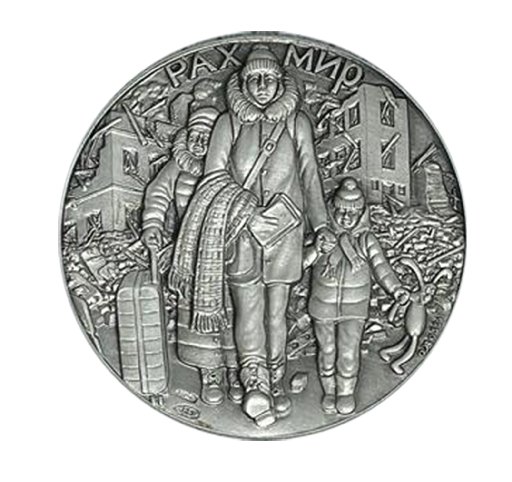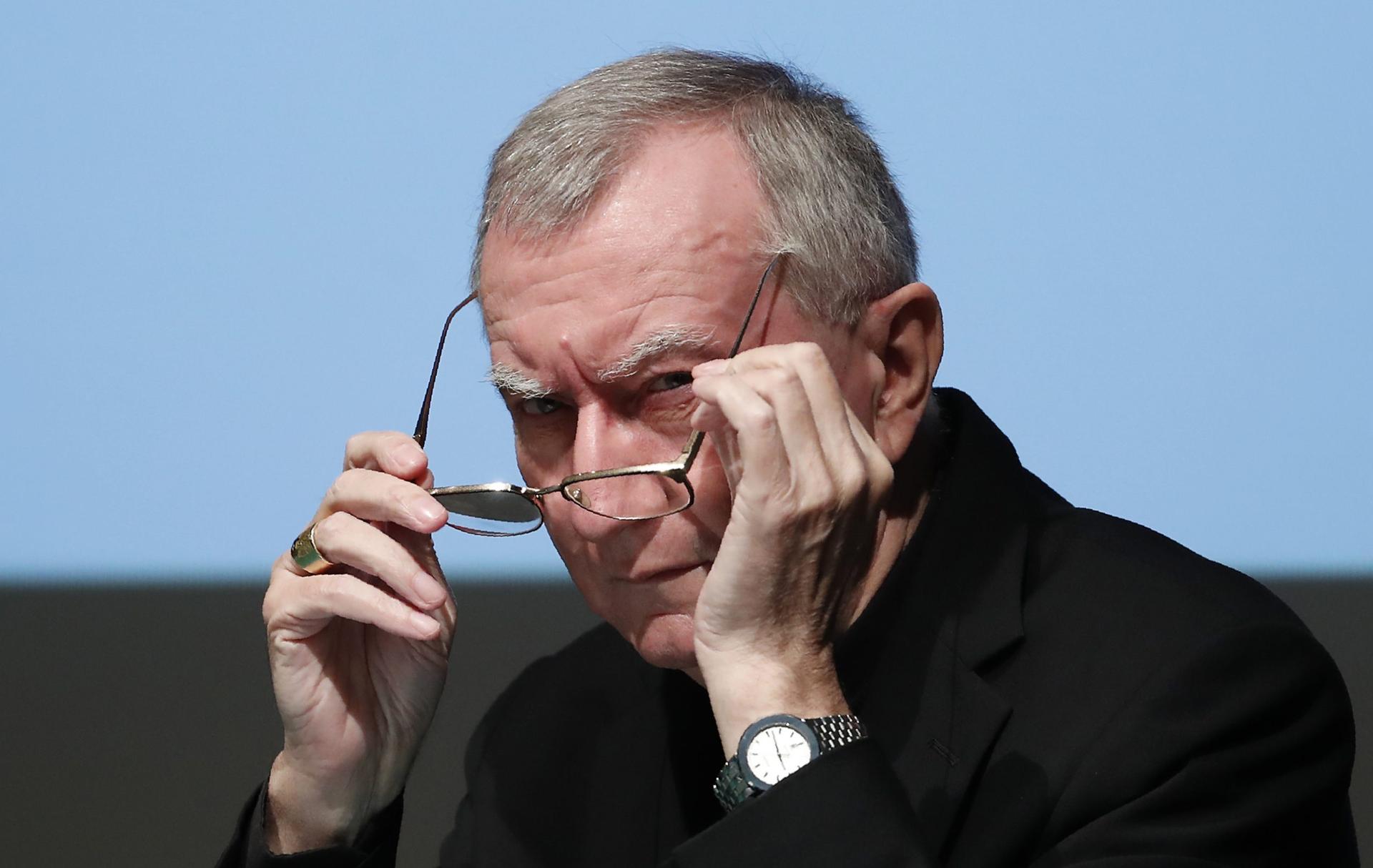ROME – The Vatican’s top diplomat said he believes that there is reason to celebrate Ukraine becoming one step closer to a member of the European Union.
“I am very pleased with this decision,” Cardinal Pietro Parolin told Crux Thursday, reacting to the news that the European Union has granted Ukraine and Moldova “candidate status.”
“I think it is a very important move, and as the Ambassador of Hungary said, Ukraine belongs to Europe, and Europe belongs to Ukraine.”
The cardinal’s words came at the end of an event organized by Andrii Yurash, the Ukrainian ambassador to the Holy See, and the Vatican’s Secretariat of State to present the first-ever Vatican coin that will be sold to raise funds to help Ukrainians following Russia’s invasion on Feb. 24.

The Philatelic and Numismatic Office said in mid-May that it would issue an official medal dedicated to peace in Ukraine as a way to encourage a halt to weapons and a return to dialogue.
One side of the medal depicts three female figures fleeing a bombed city with their entire lives in a suitcase. The young mother depicted is meant as a reminder of the need to welcome one another and show solidarity. An elderly woman and a young girl are walking with her. The word “peace” is inscribed at the top.
The other side of the coin depicts a dove of peace with an olive branch above Pope Francis’s name and coat of arms, as well as a special prayer the pope recited during his general audience March 16, imploring God to forgive humanity for waging war, especially the war in Ukraine.
The excerpt in Italian reads: “Lord Jesus, born under bombs falling on Kyiv, who died in a mother’s arms in a bunker in Kharkiv, a 20-year-old sent to the front lines, have mercy on us.”
All proceeds from the sales of the 50 Euro ($53) medal “will be donated to the Holy Father for charitable work in favor of the Ukrainian people.”
“It is a very concrete gesture for Ukrainians, both those who are still in Ukraine and around the world,” Yurash said during the presentation of the coin.
Ambassador Eduard Habsburg, Hungary’s representative to the Holy See, said that together with all the other ambassadors of the European Union, he celebrated Ukraine being granted candidateship for the European Union.
“It is a very big step and we are all very happy,” he said. “We are happy for this step, that will hopefully inspire all the countries that are hoping to become closer to the European Union.”
In his remarks to Crux, Parolin also said that it was his and the Holy See’s hope that “these steps might help us bring us closer to peace, which is what truly matters: That these steps bring us together, also so that we can understand each other better.”
Ukraine had applied to join the European Union days after the Russians invaded, and the process moved at a record speed.
Ukrainian President Volodymyr Zelenskyy hailed Thursday’s decision via Twitter, saying that it is a “unique and historical moment in [Ukraine]-EU relations… Ukraine’s future is within the EU.”
The mayor of the Ukrainian capital Kyiv, former boxer Vitali Klitschko, also welcomed the news, saying that “we paid a very high price for this chance. Yes, we still have a lot to do on the way to the European family.”
“But I am sure that Ukraine will do everything necessary, fulfill all the conditions and pass the necessary laws. Because otherwise our state has no future. Indeed, our best defenders are dying for it,” he wrote on Telegram.
Candidate status is the first official step towards EU membership. But it can take many years to join and there’s no guarantee of success.
The EU is an international organization comprising 27 European countries and governing common economic, social, and security policies. Originally confined to western Europe, in the 21st century, it undertook a robust expansion into central and eastern Europe to include countries that were part of the former Soviet Union.
European Commission President Ursula von der Leyen, who was welcomed by the pope earlier this month, also took to Twitter to declare that “today is a good day for Europe.”
She added that the decision strengthens Ukraine and Moldova, “in the face of Russian imperialism.”
The last country to join the bloc was Croatia in 2013.
Follow Inés San Martín on Twitter: @inesanma














